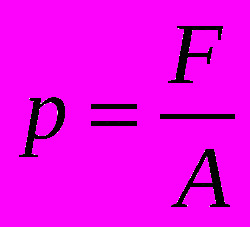Hydraulics is an area of Physics that studies the physical characteristics of fluids in their liquid state, whether at rest or in motion.
Also known as Fluid Mechanics, it is responsible for identifying the behavior and use of confined or flowing fluids, as a way for them to act as transmitter systems of energy.
Through their studies, it is possible to know the laws governing transport, energy conversion, the regulation and control of fluids acting under the effect of variables such as pressure, flow, temperature, viscosity, etc.
In this sense, the main law underlying hydraulic studies is that the pressure exerted at a point any of a liquid at rest (static) is the same in all directions and exerts equal forces in areas equals.
The study of hydraulics can be divided into three parts: a hydrostatic, which is dedicated to understanding the behavior of fluids at rest, the hydrokinetics, which studies fluids in motion and the hydrodynamics, which takes into account the variables involved in fluid flow, such as gravity, pressure, shear stress, viscosity, compressibility and others.
Hydraulics is, above all, a very applied study in the areas of exact sciences, such as engineering, mainly for the construction of systems that generate energy through the movement of water, the so-called energy hydraulics.
Hydraulic energy
Also known as hydro or hydroelectric energy, hydraulic energy is that obtained through harnessing the potential and kinetic energy of water currents in rivers, seas or falls of water.
Considered a renewable and clean energy source, it is obtained through the movement of water that move the existing turbines in hydroelectric plants and transform this force into energy electric.
hydraulic pressure
When pressure is exerted on a point in a liquid, it is transmitted to all points in the liquid. This is the principle of the so-called hydraulic pressure or Pascal's Principle, where the pressure increases suffered by a body of a liquid are transmitted integrally to all points of the liquid and the walls of the container where it is contained.
To calculate the hydraulic pressure, the formula is used:

Where,
p - pressure (N/m² or Pa - Pascal)
F - force (Newton)
A - area (m²)
